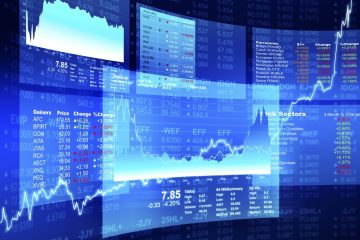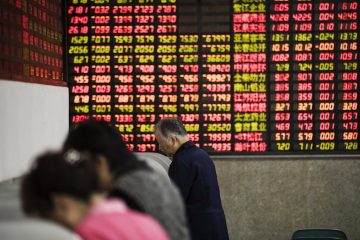The 5 Biggest Risks Facing the Markets

Howard Marks, founder and co-chairman of Oaktree Capital Management LP, sees a number of big risks for the markets, as detailed in a commentary that he wrote for Barron’s. Investopedia has studied this exhaustive, wide-ranging piece of over 10,750 words, and found five concerns articulated by Marks that deserve particular attention. These are: widespread uncertainties, excessive asset prices, risk-loving behavior, a liquidity glut and investors unprepared for a market decline.
Widespread UncertaintiesMarks cites uncertainties in six areas: secular economic growth, the impact of central banks, interest rates and inflation, political dysfunction, geopolitical trouble spots, and the long-term impact of technology, He believes that these current uncertainties are unusually numerous, large and intractable. Against this background, the historically low expectations of market volatility being registered by the VIX Index seem to be out of sync with reality.
Excessive Asset PricesMarks sees asset prices as being excessive across the board, with few real bargains to be found anywhere. Instead, one has to settle for what’s less overpriced than the alternatives. As a result, Marks writes, “In the vast majority of asset classes, prospective returns are just about the lowest they’ve ever been.” A sure sign of a bubble, he says, is when investors buy into fads regardless of the price.
Widespread UncertaintiesMarks cites uncertainties in six areas: secular economic growth, the impact of central banks, interest rates and inflation, political dysfunction, geopolitical trouble spots, and the long-term impact of technology, He believes that these current uncertainties are unusually numerous, large and intractable. Against this background, the historically low expectations of market volatility being registered by the VIX Index seem to be out of sync with reality.
Excessive Asset PricesMarks sees asset prices as being excessive across the board, with few real bargains to be found anywhere. Instead, one has to settle for what’s less overpriced than the alternatives. As a result, Marks writes, “In the vast majority of asset classes, prospective returns are just about the lowest they’ve ever been.” A sure sign of a bubble, he says, is when investors buy into fads regardless of the price.
A related danger sign is when investors become so overly optimistic that they worry more about missing out on the “current market darling” than about the potential downsides, including overpaying. In this vein, Marks offers the five FAANG stocks as an example. These are Facebook Inc. (FB), Amazon.com Inc. (AMZN), Apple Inc. (AAPL), Netflix Inc. (NFLX) and Google parent Alphabet Inc. (GOOGL). He says that bull markets typically are marked by a group of what he calls “super stocks” for which no price seems to be too high, on the expectation that current trends can be extrapolated to infinity. For historical perspective, he cites the so-called “Nifty Fifty” super stocks of an earlier era, many of which have since fallen by the wayside.


